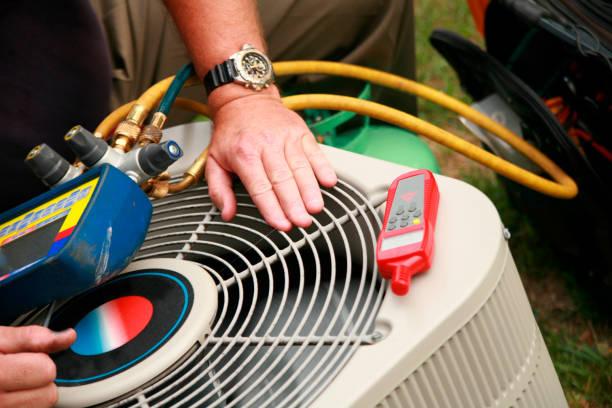How to Choose the Right HVAC System for Your Home

Selecting the ideal HVAC system is essential for maintaining a comfortable and energy-efficient home. The right system not only keeps your home warm in winter and cool in summer but also ensures optimal indoor air quality. With many options available, understanding the key factors that affect performance, cost, and efficiency can help homeowners make informed decisions.
A well-designed system balances heating, cooling, and ventilation to create a comfortable indoor environment. Modern units are energy-efficient, quieter, and compatible with smart home technology, making it easier to manage temperature and airflow throughout your home.
Factors to Consider When Choosing an HVAC System
1. Home Size and Layout
The size and layout of your home play a crucial role in selecting the right system. A unit that is too small will struggle to maintain comfortable temperatures, while an oversized system can cycle on and off too frequently, wasting energy and reducing efficiency. Consulting with a professional to perform a load calculation ensures the system is correctly sized for your space.
2. Energy Efficiency
Energy efficiency is a major consideration for homeowners. Look for units with high SEER (Seasonal Energy Efficiency Ratio) ratings for cooling and high AFUE (Annual Fuel Utilization Efficiency) for heating. Energy-efficient systems reduce utility costs while lowering environmental impact, making them a smart long-term investment.
3. Indoor Air Quality
Modern HVAC systems often include air filters and ventilation components that remove dust, allergens, and other pollutants from the air. Choosing a system with effective filtration and humidity control helps create a healthier living environment, especially for families with children, elderly members, or anyone with respiratory sensitivities.
4. System Type
Different types of systems offer unique benefits. Central air systems are ideal for consistent heating and cooling across multiple rooms, while ductless mini-split systems provide flexibility and energy savings for individual zones. Heat pumps are another option, offering both heating and cooling with high efficiency. Understanding your home’s specific needs will help determine the best type.
5. Smart Technology and Controls
Many modern HVAC systems include programmable thermostats or integration with smart home devices. These features allow homeowners to control temperature settings remotely, schedule energy-saving modes, and monitor system performance. Smart controls can improve comfort while reducing energy consumption.
Installation Considerations
Proper installation is crucial to maximize efficiency and longevity. A professional installer will ensure the unit is correctly sized, ductwork is optimized, and electrical connections meet safety standards. Poor installation can lead to energy waste, uneven heating or cooling, and more frequent maintenance issues.
Regular maintenance also extends the life of your system. Replacing filters, cleaning ducts, and scheduling inspections are essential steps to keep your system running efficiently and prevent costly repairs.
Benefits of a Well-Chosen HVAC System
A properly selected and installed system provides consistent comfort, energy savings, and improved indoor air quality. It can also increase the value of your home, as modern, efficient units are attractive to buyers. Furthermore, reducing energy consumption benefits both your budget and the environment, making it a win-win solution
Conclusion
Selecting the right HVAC system is a critical decision that impacts your home’s comfort, energy efficiency, and indoor air quality. By considering factors such as home size, energy efficiency, system type, and smart technology, homeowners can choose a system that meets their specific needs. Proper installation and regular maintenance ensure long-term performance, lower energy bills, and a healthier living environment. Investing time in selecting the right system today pays off in consistent comfort and cost savings for years to come.
FAQs
1. How do I know what size HVAC system my home needs?
A professional load calculation considers your home’s square footage, insulation, window placement, and climate to determine the correct size.
2. What is the most energy-efficient HVAC system?
Systems with high SEER and AFUE ratings, or modern heat pumps, offer excellent energy efficiency while reducing utility costs.
3. Can HVAC systems improve indoor air quality?
Yes. Units with quality air filters, ventilation, and humidity controls help remove dust, allergens, and pollutants from your home.
4. How often should an HVAC system be maintained?
Regular maintenance, including filter replacement and annual professional inspections, ensures optimal performance and longevity.
5. Are smart HVAC systems worth it?
Absolutely. Programmable thermostats and smart controls allow better energy management, convenience, and improved comfort.
- Seo
- Art
- Causes
- Crafts
- Dance
- Drinks
- Film
- Fitness
- Food
- Games
- Gardening
- Health
- Home
- Literature
- Music
- Networking
- Other
- Party
- Religion
- Shopping
- Sports
- Theater
- Wellness
- Business & Money

